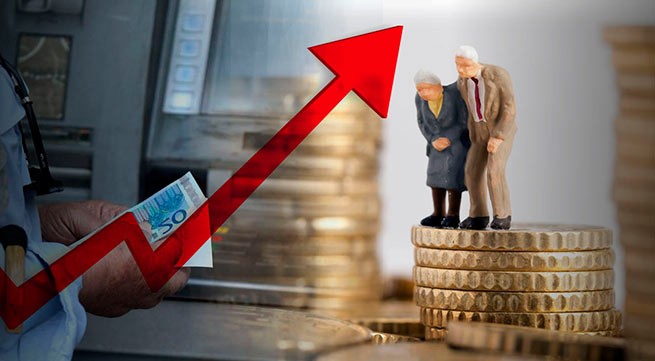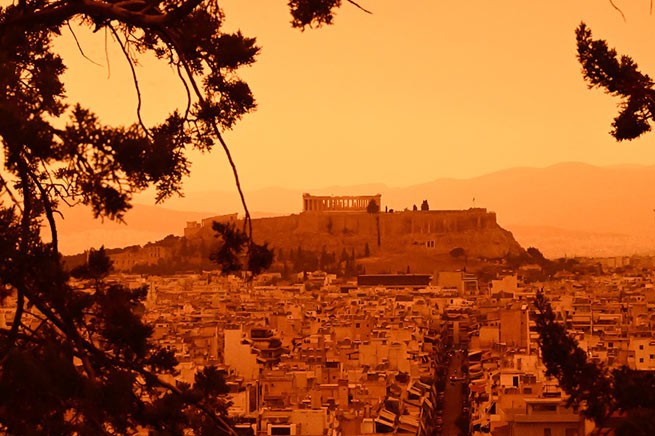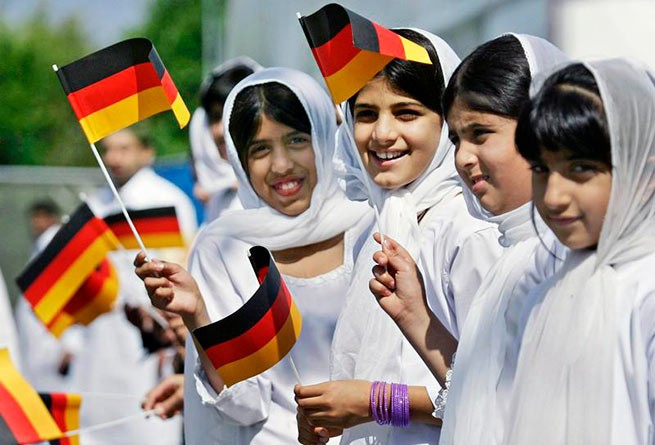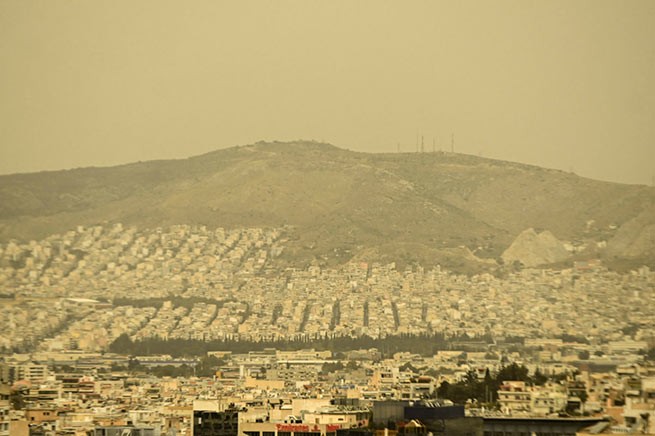The Baptism of the Lord, or Epiphany (Θεοφάνεια), is celebrated by Orthodox Christians in Greece on January 6. On this day, the Church recalls an evangelical event – how the prophet John the Baptist baptized the Lord Jesus Christ in the Jordan River.
The baptism of the Lord God is one of the most important Christian holidays. On this day, Christians around the world remember the gospel event – the baptism of Jesus Christ in the Jordan River. The Savior was baptized by the prophet John the Baptist, who is also called the Baptist.
The second name, Epiphany, is given to the holiday in memory of the miracle that happened during baptism. The Holy Spirit descended on Christ from heaven in the guise of a dove and a voice from heaven called him Son. The Evangelist Luke writes about this: Heaven was opened, and the Holy Spirit descended upon Him in bodily form, like a dove, and there was a voice from heaven, saying: You are my beloved Son; in you is my good pleasure! (Matt. 3: 14-17). This is how the Holy Trinity was manifested in images visible and accessible to man: the voice is God the Father, the dove is God the Holy Spirit, Jesus Christ is God the Son. And it was testified that Jesus is not only the son of man, but also the Son of God. God appeared to people.
When the Baptism of the Lord is celebrated
The Baptism of the Lord is celebrated by the Greek Orthodox Church on January 6th. The Feast of the Epiphany has 4 days of forefeast and 8 days of afterfeast. Forefeast – one or several days before a big holiday, the services of which already include prayers dedicated to the upcoming event. Accordingly, afterfeast is the same days after the holiday. Celebration of the feast is the last day of some important Orthodox holidays, celebrated with a special service, more solemn than on ordinary days of afterfeast.
Events of the Baptism of the Lord
After fasting and wandering in the wilderness, the prophet John the Baptist came to the Jordan River, in which the Jews traditionally performed religious ablutions. Here he began to speak to the people about repentance and baptism for the remission of sins, and baptize people in the waters. This was not the Sacrament of Baptism as we know it now, but it was a prototype of it.
The people believed the prophecies of John the Baptist, many were baptized in the Jordan. And then one day Jesus Christ himself came to the banks of the river. At that time He was thirty years old. The Savior asked John to baptize Him. The Prophet was surprised to the depths of his soul and said: “I need to be baptized by You, and do You come to me?” But Christ assured him that “we must fulfill all righteousness.” At the time of baptism, heaven was opened, and the Holy Spirit descended upon Him in bodily form, like a dove, and there was a voice from heaven, saying: You are my beloved Son; in you is my good pleasure! (Luke 3: 21-22).
The baptism of the Lord was the first manifestation of Christ to the people of Israel. It was after the Epiphany that the first disciples followed the Teacher – the apostles Andrew, Simon (Peter), Philip, Nathanael.
In two Gospels – Matthew and Luke – we read that after Baptism the Savior withdrew into the wilderness, where he fasted for forty days in order to prepare for a mission among people. He was tempted by the devil and did not eat anything during those days, and after them he was hungry for the last (Luke 4: 2). The devil approached Christ three times and tempted Him, but the Savior remained strong and rejected the evil one (as the devil is called).
Baptism of the Lord – the history of the holiday
The baptism of the Lord began to be celebrated when the apostles were still alive – we find a mention of this day in the Apostolic Statutes and Rules. But at first, Epiphany and Christmas were a single holiday, and it was called Epiphany.
Since the end of the 4th century (in different places in different ways), the Baptism of the Lord has become a separate holiday. But even now we can observe echoes of the unity of Christmas and Baptism in the divine services. For example, both holidays have an Eve – Christmas Eve, with strict fasting and special traditions.
In the first centuries of Christianity, new converts were baptized at Epiphany (they were called catechumens). Therefore, this day was often called the “Day of Enlightenment”, “the Feast of Lights”, or “Holy Lights” – as a sign that the Sacrament of Baptism cleanses a person from sin and enlightens with the Light of Christ. Even then, there was a tradition to consecrate waters in reservoirs on this day.
Blessing of water
On Epiphany on January 6, the rite of the Great Blessing of Water is performed. A long procession of townspeople makes their way to a body of water – a sea, a river, or a lake. The priest, at the end of the service, blesses the water in the reservoir (in the northern part of Greece in a specially equipped ice-hole). After that, he throws the cross, with which he has just consecrated the water and blessed those present, into the reservoir, and the believers dive behind it. At the same time, not only young men and young men dive into the icy water, but also older people with excellent health.






More Stories
North Macedonia welcomes recognition by the Patriarchate of the Church of Ohrid
Bogdanos: Pakistan and Britain are financing the construction of a new mosque in Megara
Metropolitan Pavel of Drama dies